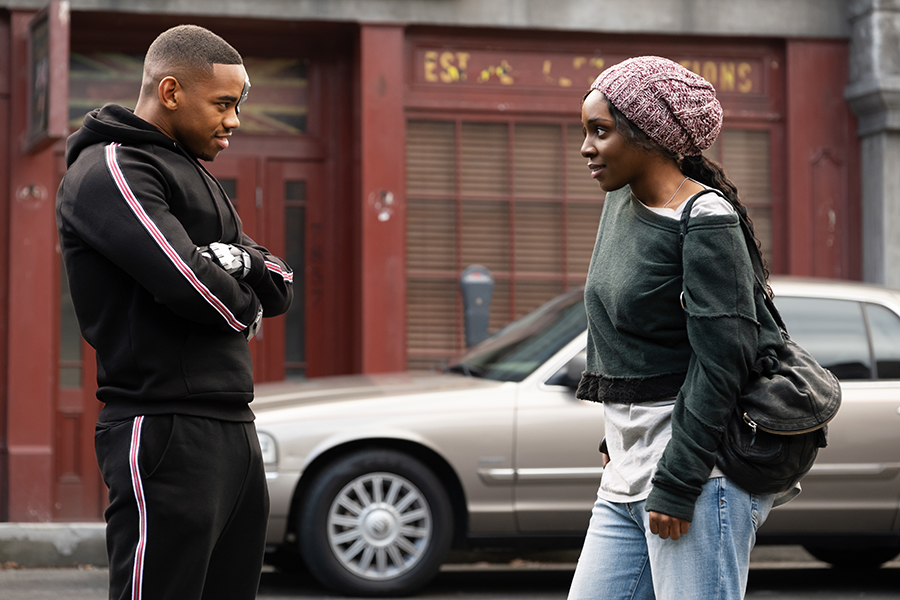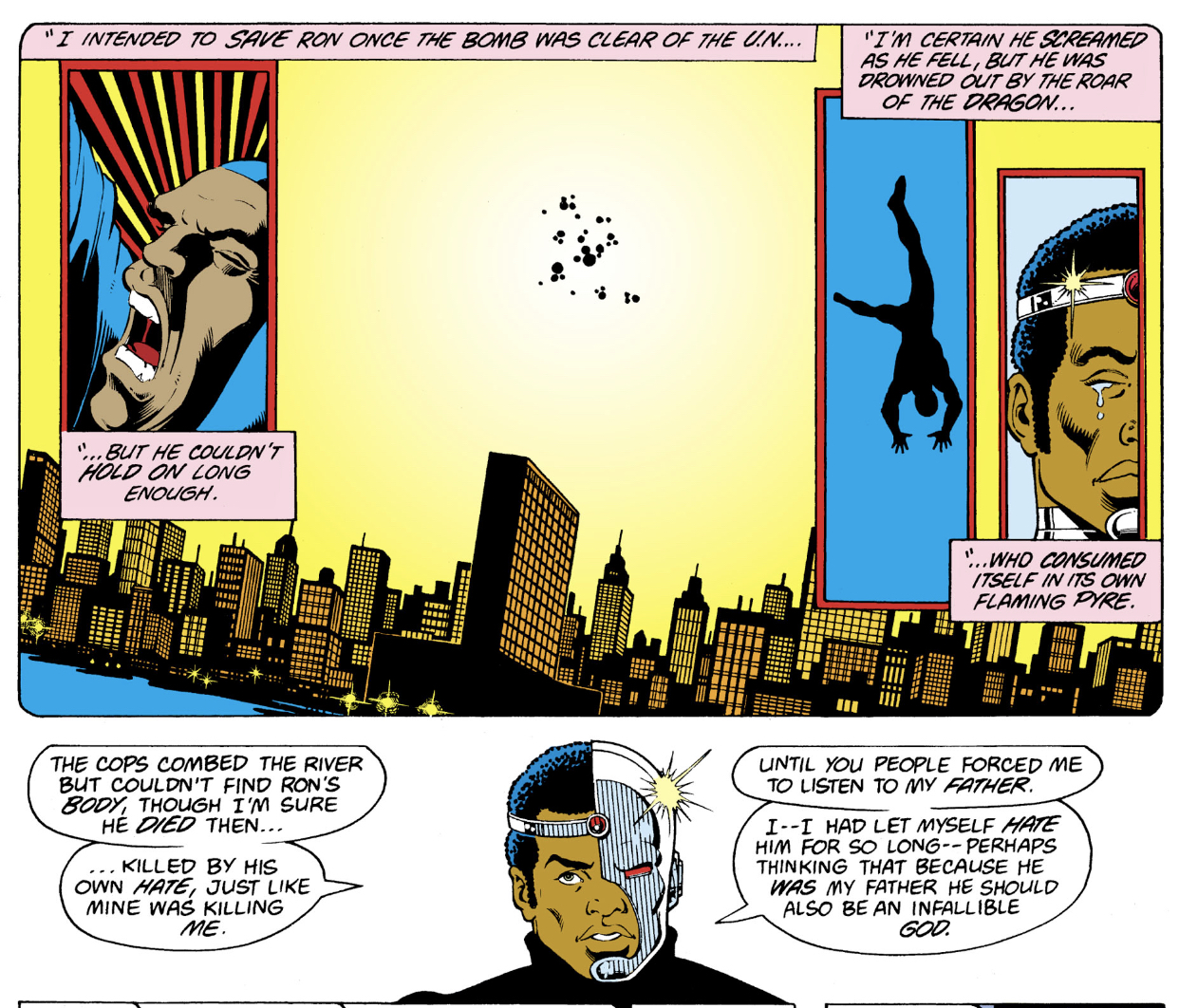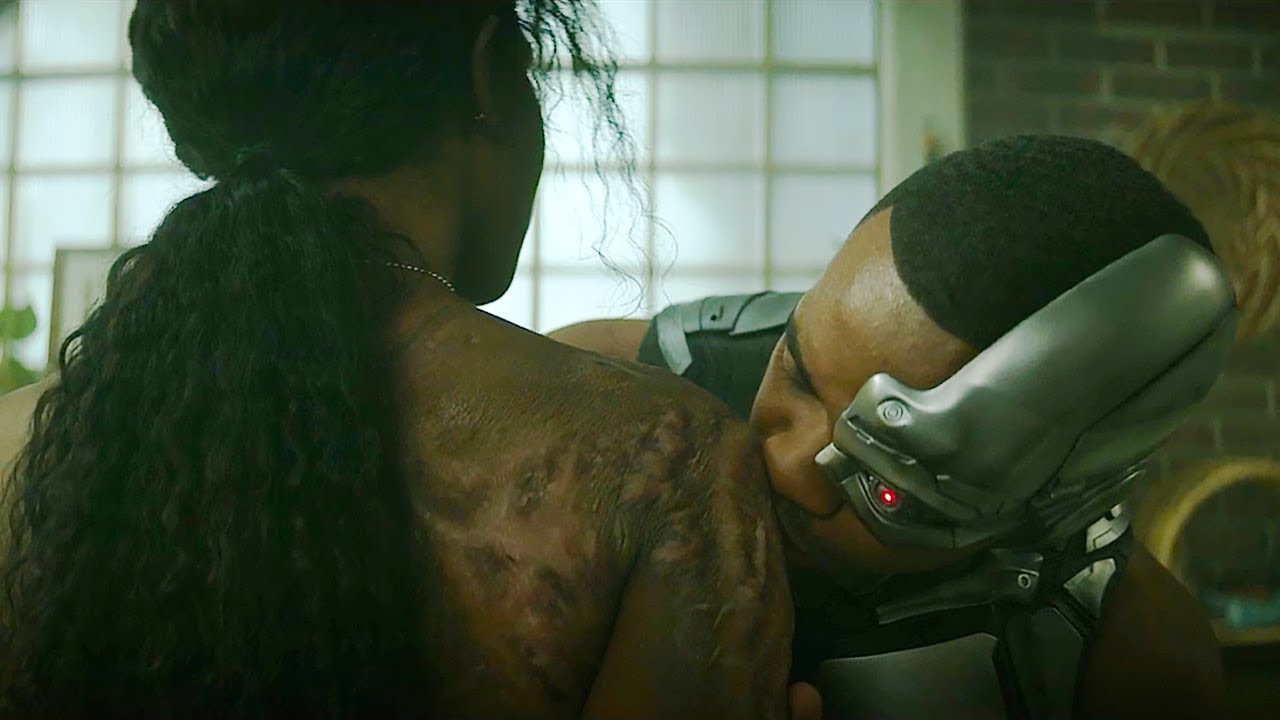How Roni Evers brings out Cyborg's humanity in 'Doom Patrol'
Adaptations of comic books into shows or movies can be hit or miss. When those adaptations fall short, it’s disappointing, to say the least. However, when they hit, it’s a beautiful thing to experience, especially for characters who benefit from it.

The latest updates, reviews and unmissable series to watch and more!
You are now subscribed
Your newsletter sign-up was successful
Want to add more newsletters?

ONCE A WEEK
What to Watch
Get all the latest TV news and movie reviews, streaming recommendations and exclusive interviews sent directly to your inbox each week in a newsletter put together by our experts just for you.

ONCE A WEEK
What to Watch Soapbox
Sign up to our new soap newsletter to get all the latest news, spoilers and gossip from the biggest US soaps sent straight to your inbox… so you never miss a moment of the drama!
This post contains spoilers for Season 2 of Doom Patrol.
Adaptations of comic books into shows or movies can be hit or miss. When those adaptations fall short it’s disappointing to say the least. However, when they hit, it’s a beautiful thing to experience, especially for characters who benefit from it. Adaptations leave room for varying interpretations and create an opportunity to build on already established lore. Retelling the same stories verbatim is fine, but making changes to story beats for characters can help inject new life into those who have been around for decades. Doom Patrol has managed to do just this, and it's done it well. It’s an underrated gem of a comic book adaptation of some of DC Comics' more obscure characters. It’s an absurd show, but so are the comics. Interestingly enough, the most well-known member, Cyborg, has been one of the characters to benefit the most from the series.
Doom Patrol is a magical blend of outlandish and intimate storytelling. There are portals located in donkey asses, talking cockroaches, vengeful rats, a non-binary street named Danny that’s a haven for some of the most vulnerable communities, and a guy who can make others orgasm by just flexing his muscles. In all its ridiculousness, Doom Patrol also tackles weighty topics such as PTSD, depression, anxiety, grief, and drug addiction. And somehow, it all works and has been precisely what a straight-laced character like Cyborg needed. (Not that he wasn’t already getting some of the goofiness in the animated TV series Teen Titans Go.)
In Doom Patrol, Cyborg is allowed to be human rather than just continuously grappling with humanity. This iteration of the caracter is Victor Stone, who happens to be Cyborg and not the other way around. The second season is when we get the best Cyborg we’ve ever gotten in any form of media. The show accomplished this by not only gender flipping a character who has been essential to his origin story but also revamping the beginning of their narrative together.
Victor Stone meets Roni Evers in the second episode while attending a support group. She is in the middle of sharing her story but stops, taking issue with his tardiness. He doesn’t notice her disdain right away because he that enthralled by her presence from the moment he walks in. This all sets up a blend of some well-known romance tropes, enemies to lovers, forbidden love, and soul mates, all because of who Victor is and this remixed Roni Evers, who was once Ronald Evers in the comics.
Ronald Evers is known as Victor’s first friend and one of his biggest betrayers, second only to Silas Stone. Keep in mind both these characters were created by non-Black creators, so not only are their histories with one another dated, but it’s also severely lacking in serving either character in ways that make them dynamic. The characterization of Ronald presents him as a militant street kid for lack of better wording. He represents all the things that Victor’s parents, especially his father, don't want him to be. The story of their friendship gone sour relies heavily on respectability politics and an abundance of blaxploitation energy. Ronald blames white people for all the obstacles he has to endure, while Victor doesn’t and claims he doesn’t notice the difference in people based on their skin color. Victor’s views are quite tragically ignorant. Significantly, coming from a character who would be judged by his skin color because of the United States' racial history, but once he becomes Cyborg, it’s amplified because now his appearance has drastically changed. Their relationship is tone-deaf, and there is no way it would work in 2020. It’s amazing it even worked back in the ‘80s.
Once Victor Stone becomes Cyborg after a tragic incident that kills his mother and leaves him barely alive, he goes through inner turmoil and outward hate toward his father. In different tellings of Victor’s origin story, Ronald becomes increasingly militant by either going away to jail or just trying to survive in his neighborhood. No matter how the story is slightly tweaked, Ronald always ends up trying to blow up either a UN building or S.T.A.R. labs for what they’re doing to Black kids in the community regarding their research. Ronald and his crew try to make Cyborg their scapegoat, but the plan goes sideways, leaving Cyborg with the choice to save the building or save Ron. He still protects the building, and Ron falls to what is assumed to be his death. The two will meet again, but Ronald is now a government weapon and a cyborg himself. Victor and Ronald have had their bodies changed against their will, both have anger toward the person/people who experiment on them, but their similarities always end at how they view those who harmed them. Ron wants revenge while Cyborg continues to internalize his anger, letting it manifest in other ways that aren’t conducive to his healing. An overhaul of Ronald Evers was severely overdue for both the character’s sake and Cyborg’s.
The latest updates, reviews and unmissable series to watch and more!

The Roni Evers introduced in Doom Patrol is a Black woman who is a disabled military veteran dealing with severe PTSD. She has a chip on her shoulder, similarly to Ronald, but instead of letting it fester, she is actively seeking out forms of therapy to process her trauma. That’s how she and Cyborg meet. By making Roni a Black disabled woman who attends group therapy, the narrative dramatically changes. There is no longer a one-dimensional caricature of a disenfranchised Black person that only serves as fodder for Cyborg’s character growth.
Cyborg and Roni still have differing opinions, but he is more receptive to listening to what she has to say. The animosity between them quickly dispelled once the two realize they have more in common than PTSD. There is a mutual attraction and sexual tension thicker than a bowl of oatmeal between the two. It increases once Cyborg witnesses Roni easily take down a would-be assailant with her cane. This moment is empowering for Roni, but it’s the first time of many we witness an adorable Cyborg enamored with a woman who brings out Victor in ways he hasn’t known since his accident. Cyborg wants to take the would-be robber to the police station, but Roni stops him, explaining that the kid was only doing what he felt he needed to survive. It doesn’t make his actions right, but he shouldn’t be judged by the worst thing he has done while trying to survive such a bleak situation. Words Roni could do a better job of applying to herself, but they speak to Cyborg, and he backs down. This seems small, but it’s not for him, a very by-the-book, straightlaced, status quo guy who often sees things in a very binary way. With Roni, Victor emerges, and Cyborg transforms into this young Black man with hella swag and a killer smile, who wants to get to know this woman better.
It’s the intimate moments between Roni and Victor that do both characters the most justice by bringing out those bits of humanity. Here are two disabled Black characters giving each other the space to be vulnerable while also freely expressing their desire. If there is a moment of self-depreciation, it doesn’t last long, nor is it used against them. Instead, those moments show them seeing each other as whole beings, not just spectacles of trauma. Cyborg has been intimate in the comics before, but the few times he has been, they’ve still been cold or calculated in some way or another. Thankfully, that can’t be said about the displays of his intimacy in the Doom Patrol series. There is even pillow talk afterward! It’s simply beautiful to witness. Victor Stone is present, allowing himself to open up to this woman in ways he hasn’t since his accident. In return, Roni allows herself to be on the receiving end of some tender affection. Blossoming young Black love is in full effect on this superhero show, and it’s refreshing.

It’s not all love and kisses between them, either. The energy from their relationship in the comics is still present, but you can give a damn about it because they’re not one-dimensional characters. Even when Roni tries to push Victor away by sharing some info from her past with him, he doesn’t act the way Cyborg traditionally would. Instead, he decides to hold on to the good he sees in her, a massive leap in character growth for someone who has been more like Batman than Superman at times. Victor goes as far as to contact his dad to get Roni the medical attention she needs. And even after Roni takes serum from the Doom Patrol manor that gives her enhanced abilities to carry out her revenge against the man who caused her body further trauma, Cyborg lets her go after the two have it out in the same bar they had their first date. It’s a bittersweet moment because he has strong feelings for her. You can see how he is earnestly trying to understand where she is coming from despite how much it goes against him and how he views justice and what it means in a very binary way.
What Doom Patrol has done to the character Ronald Evers is one of the best reintroduction of an already established character in adaptations to date. Roni Evers is what Cyborg has been missing all this time. Victor Stone has been around for 40 years now. And in that time, it hasn’t been enough to repeatedly bring him back to life, destroy him or dismantle him, and then bring him back again in an attempt to flesh him out. The never ending existential crisis hasn’t done much for a character who grapples with whether he is a man or a machine. Constantly changing his character design to contribute to his inner battle in one direction or the other hasn’t served the character effectively either. Instead, allowing Victor to be in situations as simple as experiencing his first love after such a traumatic experience, but not interrupting it by ripping his body or theirs to shreds. The series has done that, and more, finally giving Victor the humanity that has always been there without relying solely on dismantling him physically or mentally to get there. Even if things don’t end up tied up neatly in a bow for Victor and Roni, it’s okay because they’re given the humanity to establish they are two broken people capable of finding their way to wholeness individually or together.

